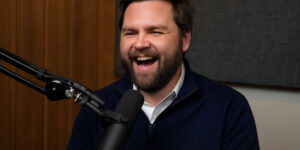Islamists Kill Nigerian Pastor’s Wife, Kids
As she lay on the ground after being shot and then slashed with a machete, Dune James Rike looked into her husband’s tear-filled eyes and asked, “Is this the end between us, so we shall not be together again?”
Pastor James Musa Rike told Compass he held the hands of his dying, 35-year-old wife and told her, “Hold on to your faith in Jesus, and we shall meet and never part again.”
Muslim extremists who attacked Kurum village, in the Bogoro local government area of Nigeria’s Bauchi state, had already killed two of the couple’s children in a rampage that began Wednesday (May 4) at midnight. Rike, pastor of a Church of Christ in Nigeria (COCIN) congregation in Kurum, next heard the cries of his 13-year-old daughter, Sum James Rike, a few yards away.
“I rushed to my daughter, only to discover that she too was cut with a machete on her stomach, and her intestines were all around her,” he said. “I held her hand and began to pray, knowing she too was about to die. She told me that the Muslim militants told her they would kill her and ‘see how your Jesus will save you.'”
The girl told her father that she responded by telling them that Jesus had already saved her, and that by killing her they would only be making it possible for her to be with Him. Pastor Rike prayed for her as she died.
Shooting and setting homes on fire, the Muslim extremists killed 12 other Christians in the attack. Bauchi police reported 16 people dead—one man, three women and 12 children.
Pastor Rike said that when the attackers reached his house, they tried to force their way into their bedrooms.
“I opened a backdoor, and we ran out into the dark night while the militants pursued us,” he said. “They shot my wife and two of our kids as they tried to escape.”
Pastor Rike said that after killing the two children, Faith James Rike and 1-year-old Fyali James Rike, the assailants cut his wife’s abdomen with a machete.
“I was shocked at what I saw,” he said. “I knew my wife would not last long, and the only thing I did was to encourage her to hold on to her faith in Jesus.”
The Muslim extremists set more than 20 houses ablaze before leaving the village, he said.
Pastor Rike and his son survived the attack, and he said his adopted daughter, Whulham James Rike, was injured and receiving treatment at the General Hospital in Bogoro. He said five others others were also receiving hospital treatment.
Among those killed, church sources said, were Murna Ayuba; Angelina Ezekiel; Dorcas Sunday; Asabar Toma; Rhoda Joseph; Dhunhgwa Zakka; Bukata Amos; Ishaku Amos; Kalla Amos; Amos Daniel; Samidah Joel; and Changtan Joel.
The Muslim jihadists also stole money and the other valuables from the Christian village as they withdrew, church sources said.
The area has a history of sectarian violence, and the attack follows the death of hundreds of people in Bauchi and other northern states last month after Muslims rioted over the April 16 election of a Christian, Goodluck Jonathan, as president. He defeated a Muslim candidate, Muhammadu Buhari. Saying more than 200 church buildings were burned, Christian leaders in northern Nigeria have called for a federal probe into the violence, in which Christians mounted counter attacks.
Northern Nigeria climbed to 23rd place in 2010 from 27th in 2009 on Christian support organization Open Doors’ World Watch List of nations with the worst persecution.
The church where Pastor Rike ministers has about 30 members and has been in existence for more than 50 years. Those killed were members of the three churches in the village—the COCIN church, St. John’s Catholic Church and an Evangelical Church of West Africa congregation.
Pastor Rike said the incident has strengthened his faith in Jesus.
“Whatever is the situation, I will never forsake Christ,” he said. “All human beings are created by God, and our attackers must know that they need to abandon anything that will lead them to destroy creations of God.”
Nigeria’s population of more than 158.2 million is almost evenly divided between Christians, who make up 51.3 percent of the population and live mainly in the south, and Muslims, who account for 45 percent of the population and live mainly in the north. The percentages may be less, however, as those practicing indigenous religions may be as high as 10 percent of the total population, according to Operation World.






































